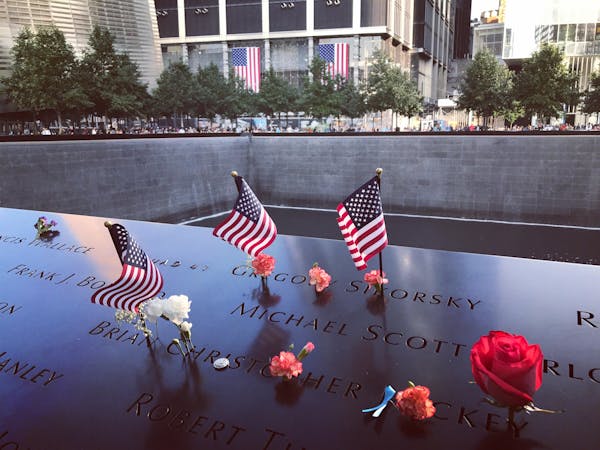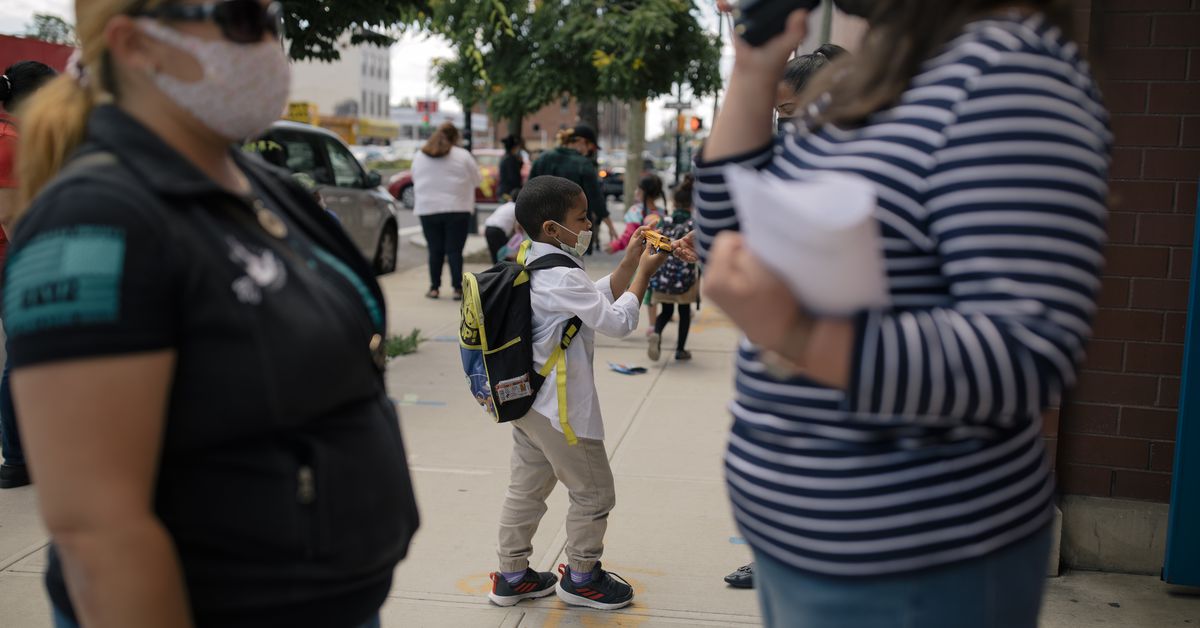Board of Education debates role in civic issues
A lingering disagreement over the way one particular anti-racism statement should be worded led to a long discussion at last week’s school board meeting about how deeply trustees should get involved in social issues.
Last June, as protests against racial injustice ramped up across the globe in the wake of the George Floyd killing, several Somers High School graduates organized a Solidarity Rally for Black Lives at Reis Park.
Just prior to the peaceful event, schools Superintendent Dr. Raymond Blanch wrote to parents citing the pandemic’s closure of the district and declaring it was hard to witness “the pain, suffering, and outrage experienced by so many without being able to gather as a school community to share our own emotions.”
Although appreciated, the statement didn’t go far enough for some. One parent called on the board to write a “meaningful” letter that explained “systemic and institutionalized” racism and come up with “measurable and actionable goals” for the district.
It publicly acknowledged the request but ultimately never issued on because trustees couldn’t agree on whether to include a mention of property damage and fatalities that had occurred during some of the unrest.
The issue reemerged after eight people, six of them Asian-American women, were gunned down in Georgia on March 16.
Three days later, the board released a letter expressing “outrage” and assuring community members of Asian descent that it stood “in solidarity” with them “today and always.”
Condemning racism “in any form,” the board wrote it was opposed to “the anti-Asian rhetoric that has been allowed to grow during this pandemic,” and that it would not “tolerate this behavior in our town or in our schools.”
It was signed by Blanch and all board members except trustee Joseph Marra, who had pushed to address rioting in an anti-racism statement last year.
Marra got the letter early Friday, but wanted the chance to read it over the weekend before signing it.
“Apparently they elected to get the letter out the door without me,” said Marra, who was upset, not about the statement, but “the process.”
After looking it over, he contacted colleagues to say that he was totally on board and that it was OK to add his name to the message.
The updated letter, with all board members’ signatures, was reposted on Monday.
On Tuesday, March 23, after board members reviewed the district’s latest reopening plans, Portnoy segued from the topic, saying that having all the kids back in class was “a tremendous privilege, and that privilege is a financial privilege, and it is a systemic privilege, and it is an institutional privilege. And agree, disagree, that’s lovely; the reality is many of our children are recipients of a lottery that’s a genetic lottery.”
The board should have taken an official anti-racism stand last year, said Portnoy, calling it “a mistake.”
“This year we felt very strongly that we would not fail our community again and we would not fail our community in not speaking out against the anti-Asian and Pacific Islander racism that we are currently seeing in this country,” she said.
Board members needed to say “out loud” in public that “we will not stand for hate or racism and we will not stand for institutional racism or systemic racism,” Portnoy said.
“I will not stand for it and the fact that we didn’t say something last year, I’m so sorry. If we could do it again, I would make sure that we did something,” she added.
Marra made an impassioned speech of his own at the board’s meeting on Tuesday, April 6.
While praising Portnoy for leading the board through a very difficult 2020, he took issue with the term “genetic lottery.”
“One thing she said is that as member of this community, our children are privileged, which they are, but I think they’re privileged for different reasons than Lindsay believes they’re privileged,” Marra said.
“And here only two generations (later), I’m an attorney and I’m privileged to live in this town. I’m privileged because of the fact that I had people I could stand on; I could stand on the shoulders of my parents and grandparents.
“I’m not privileged because of genetics or anything else. Most of us in this town, we broke our rear ends to get where we are,” he said.
It’s “extremely important” that the board and administration continue the good work of implementing equity and diversity policies, especially in a community such as Somers where the population is “90 percent white,” Marra said.
However, he said there’s a difference between being for racial justice and equality and against hate crimes and getting behind Black Lives Matter as a group.
“Are we talking about what the movement has become? How people want racial equality? Or are we talking about the organization, which is a racist, socialist, communist organization. That is something I cannot tolerate.
“Will I stand with people who want equality? Absolutely! But to stand behind an organization like that? Definitely not,” Marra said.
Marra said that while all trustees want the same thing, they might occasionally disagree on “how to get there.” Board members are usually able to work out their differences privately and put on a “unified front,” he added. Saying that he thought that his job as a trustee was to “stay above politics,” Marra said the focus should be on education and making sure children go out into “the real world” knowing how to treat others fairly.
Marra, calling the Floyd slaying “horrible,” explained that he couldn’t sign last year’s letter because, while it gave rise to well-deserved outrage, it also sparked “anarchy.”
Some trustees “did not want to address those issues,” he claimed. “If we didn’t condemn the deaths of police officers trying to protect rightful protesters, we’re condoning them. I could not stand for that.”
Portnoy, telling Marra that she thought they agreed on “so much more than we don’t agree on,” nevertheless refused to walk back her earlier statement.
“I stand behind it 100 percent,” she said, before quoting Martin Luther King Jr.: “The time is always right to do what is right.”
She reiterated that it was important to get the anti-Asian violence letter out quickly because “we have kids in our schools who identify with the same people who were attacked.”
“We do, but we also have kids in our schools who are the children of police officers and other people who are injured and killed. Why don’t we come out about that?” Marra pressed. Not budging on the issue of last year’s looting, he said: “We just have to look at an issue, agree to disagree and move on.”
“Maybe, maybe. Maybe we can talk about it. I just feel like comparing murder and loss of life to destruction of property is, like, bananas,” Portnoy replied.
Saying there’s lots of ways to engage in “civic conversation,” Portnoy told Marra that while she “respectfully” didn’t agree with some things he said, she appreciated him bringing the subject up and allowing her to speak her mind.
Trustee Chadwick Olsen said he also wrestles with “what we do as a board and what we say as a board.”
So what’s the purpose, he asked, of sending out a letter when things like the Floyd killing or the Georgia shootings happen?
“We’re here as a school board; we’re not here as a political entity. We’re not making public policy,” Olsen said. “However, we are here representing our community.”
Students, faculty, administrators and parents need to know that they are “safe” and “we’re all in this together.”
Trustee Dr. Ifay Chang, calling the board “one of the best” around, said it’s functioning “fine” despite recent disagreements.
It’s a rare issue that trustees can’t chew over and settle, he claimed, telling both Marra and Portnoy he understood their need to speak up.
“We have a very good board and I think we all want the best for the students,” Chang said.
Board Vice President Heidi Cambareri said not being able to meet in person threw a wrench into the board’s communications process.
The intent to craft a statement last year didn’t come from “a political place,” she said.
There were people who “put themselves out on a limb” by speaking up about personal experiences with racism, she said, adding: “Our own kids, our own students, our own families were telling us how they were hurting and what they needed.”







